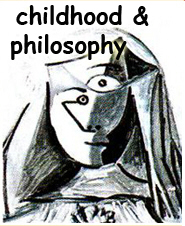freire’s concept of incompleteness and dewey’s notion of growth to analyze childhood in formative process
Keywords:
Infância. Inacabamento. Crescimento. Paulo Freire. John Dewey.Abstract
This paper presents some reflections on the anthropological perspectives of Paulo Freire and John Dewey and their theoretical development, especially with regard to childhood. Taking the first author as a reader of the second, I focus on two fundamental notions: Freire’s notion of “incompleteness” and Dewey’s notion of “growth.” The work of Anísio Teixeira, offers us important and revealing reflections on the linkages between Deweyan and Freirean ideas, particularly in relation to their critique of banking/traditional pedagogy, and the possibility for a new form of education; while Marcus Vinícius da Cunha’s study of Dewey and his introduction of the categories of "ownership" and "recontextualization" in relation to his work, help us overcome a few misunderstandings with respect to both the American author and Freire. Considering the different space-time contexts in which these authors lived, we find some similarities in the way they mapped their respective theoretical fields; but we also find differences in the ways they established pathways through these fields, and in the way they presented their arguments. Thus, from an anthropological perspective, we see that both understood the human as a being connected substantially with the changing world, a world in which s/he undergoes endless experiences that must be selected out and precised in order to lead to growth, thereby overcoming the limit situations s/he faces and responding to the exigency to become more fully human. The human is therefore an unfinished being whose inconclusiveness maintains his/her permanent educability. All this requires an education that allows for active search in the process of becoming, a form of education that believes in the intimate relationship of Being with the world and of the educator with learners, be they adults or children.Downloads
Download data is not yet available.
Downloads
Published
2014-02-10
How to Cite
HENNING, Leoni maria padilha; DE CARVALHO, Andressa coelho righi. freire’s concept of incompleteness and dewey’s notion of growth to analyze childhood in formative process. childhood & philosophy, Rio de Janeiro, v. 9, n. 18, p. 297–318, 2014. Disponível em: https://www.e-publicacoes.uerj.br/childhood/article/view/20659. Acesso em: 15 sep. 2025.
Issue
Section
articles




